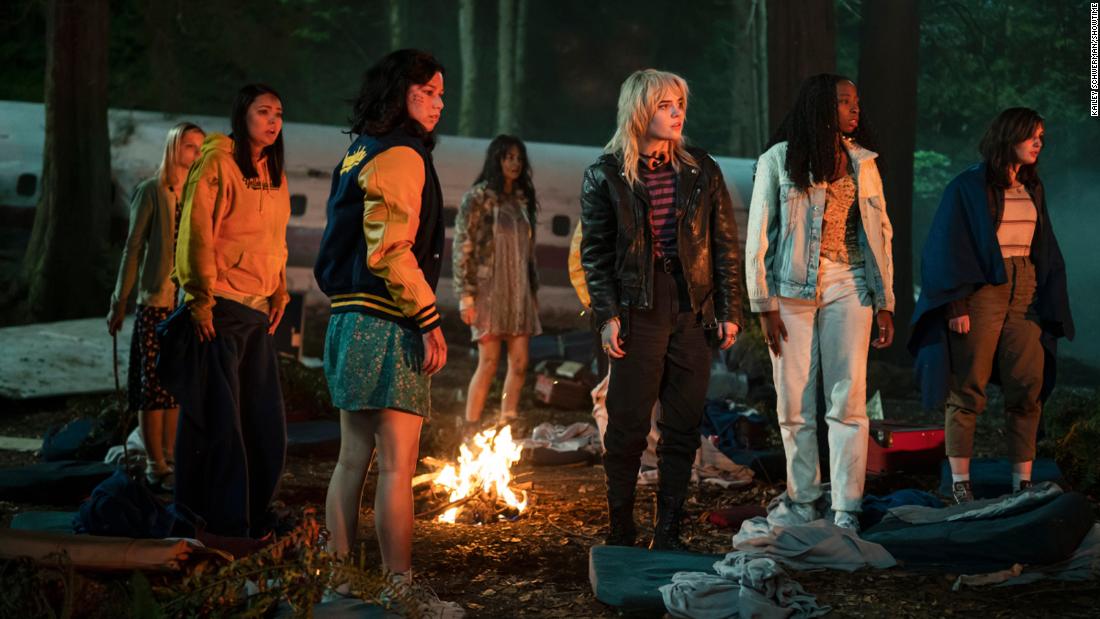(CNN)"The Forever Purge" wants to say something profound about the toxic state of US politics but keeps tripping over its horror roots. The social commentary thus sits uneasily alongside the wanton violence, with the movie's most honest aspect being its title, since if you can make them inexpensively enough, such franchises can run on and on in one form or another.
This represents the fifth "Purge" movie dating back to 2013, which has also yielded a cable series, and it's being billed as the end of the franchise. Each sequel has played with the original template -- about a totalitarian government creating one night each year where everything, including murder, is legal.
While depicting a dystopian vision, the basic formula really provides license to do a zombie movie, minus the device of reanimating corpses. Instead, much like "The Walking Dead," the horror lies in the monsters that people can become when there's no law to curb them.
"The Forever Purge" shambles along in those footsteps, while touching on provocative themes -- US immigration policy, racism, the rise of white supremacy, class divisions -- without delving deeply enough to give them serious weight.
The movie opens with husband-and-wife Adela (Ana de la Reguera, "Army of the Dead") and Juan (Tenoch Huerta) making their way into the US from Mexico, picking up 10 months later with both employed, him working on a Texas ranch.
The ranch's family patriarch (Will Patton) treats Juan well, which isn't true of his son Dylan (Josh Lucas), whose wife (Cassidy Freeman) is about to have a baby.
The Purge comes, but instead of a sigh of relief the morning after, the violence and killing continues, with a shadowy group having organized a "Forever Purge." Those masked figures vow to rid the country of immigrants while simultaneously targeting the wealthy -- a dynamic that turns Dylan and Juan, as well as those around them, into heavily armed brothers in arms.
As an example of how the drama flirts with relevance without actually braving it, Lucas' character, confronted about bigoted behavior toward Mexicans, insists he's not a racist but merely thinks people should stick to their own kind. But enough about that -- and whether the response deflects the charge -- because there's quickly more killing to do.
Directed by Everardo Gout from a script by franchise creator James DeMonaco, the politics surrounding the border -- turned upside down with the US unraveling -- similarly become a way of introducing a cursory nod to current events that takes a back seat to the matter at hand, which is a pitched battle for survival.
Early in the movie, an interview subject on TV foreshadows what's to come, calling the Purge "a virus" and warning that it's "spreading and growing and mutating." There's nothing subtle about the analogy or the idea that once unleashed, such dark impulses are difficult to contain.
Like "The Hunt," another Universal title whose attempt at violent social satire triggered controversy (prompting the studio to delay its release), "The Forever Purge's" once-over-lightly politics don't merit much of a fuss, playing like a cynical exploitation of real-world issues.
Charitably, the producers of both deserve modest credit for wanting to tackle broader themes within an action framework. In each case, though, the main takeaway is what a delicate touch that requires and how icky these movies feel, as well as the hope that this particular cinematic virus really is going away.
"The Forever Purge" premieres in theaters July 2 in the US. It's rated R.








 English (US) ·
English (US) ·